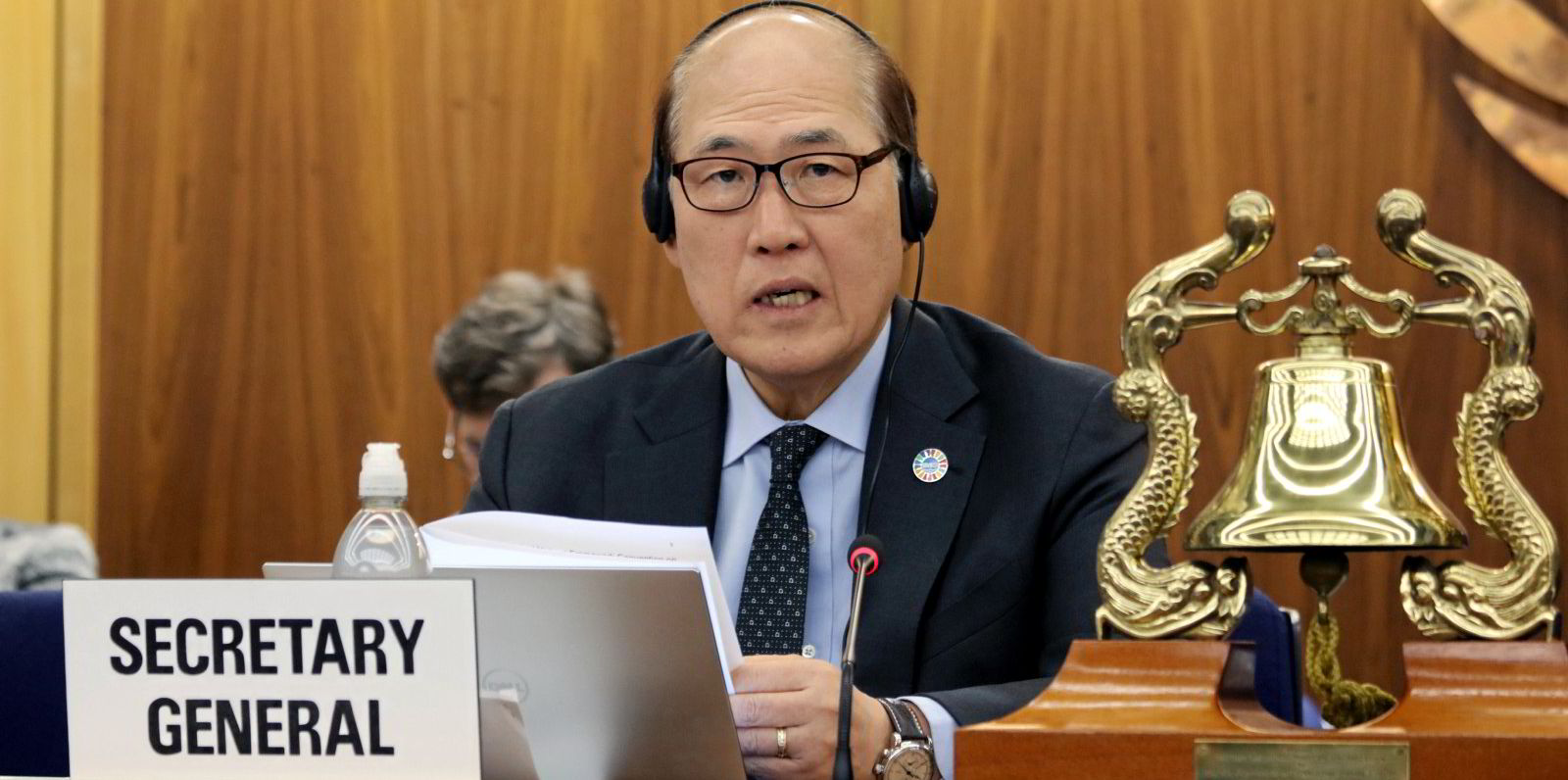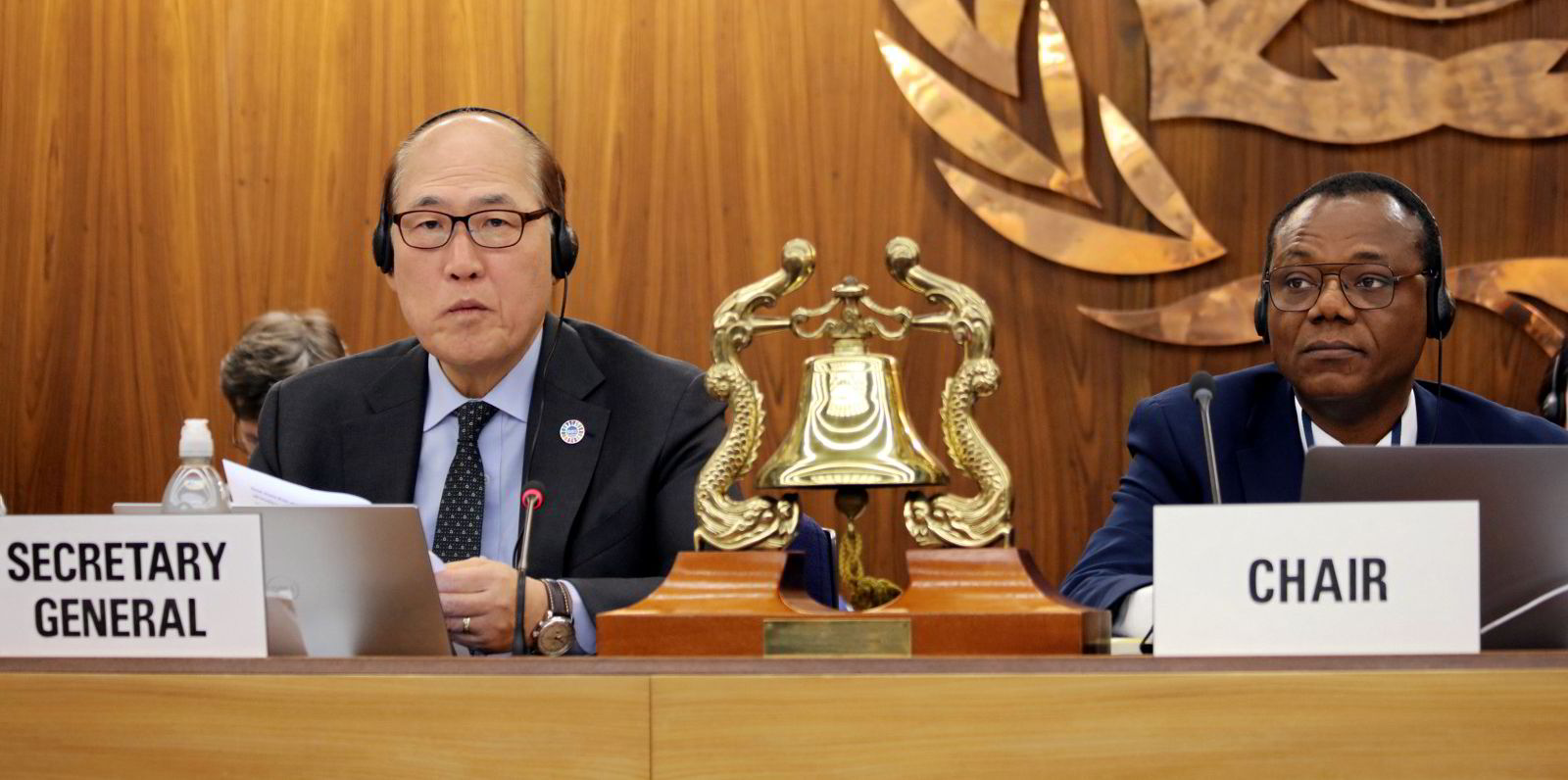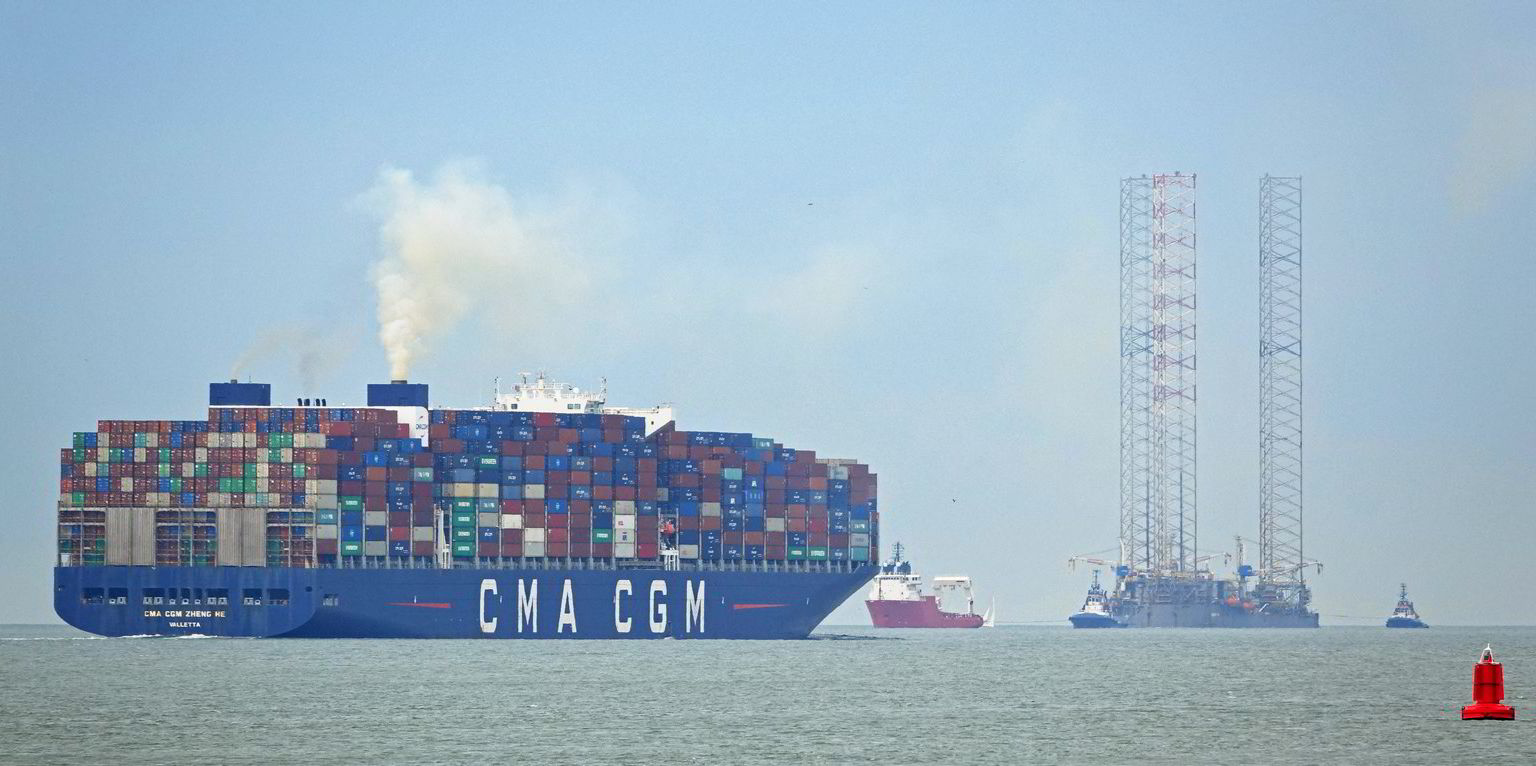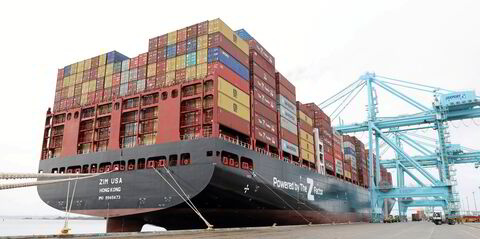Environmental groups and industry figures agreed that important progress was made to decarbonise shipping as two weeks of meetings at the International Maritime Organization came to a close.
A Marine Environment Protection Committee meeting that ended on Friday and a working group meeting the week before saw advancement toward agreeing on a levy on shipping’s greenhouse gas emissions and a companion measure to adopt fuel standards that would help ratchet down carbon intensity.
And the cohort of countries that voiced support for either a zero-carbon goal in 2050 or a net-zero goal grew, teeing up key decisions on a raft of emissions matters in a committee meeting planned for July.
Simon Bennett, deputy secretary general at the International Chamber of Shipping, told TradeWinds the group is “very encouraged” by progress over the last two weeks.
Of particular importance to ICS, which is made up of shipowners groups, is that discussions around a mechanism to put a price tag on greenhouse gas emissions are moving toward adopting a carbon levy.
“Though no firm agreement has been reached, there’s clearly growing convergence towards the idea that if we’re going to have an economic measure for shipping, that it’s going to use a levy-based approach to charging for CO2 emissions, and that’s actually quite a significant step,” he said.
Bennett said ICS believes a basket of measures, including a flat-rate levy, could be adopted by 2024.
IMO secretary general Kitack Lim, in his speech closing the committee meeting, welcomed the progress and said the UN body must keep up the momentum toward the July meeting.
Keeping the foot on the accelerator
“We cannot take our foot off the accelerator,” he said. “At this moment in time, the cooperation and dialogue that is the trademark of IMO, and not least this committee, will be more important than ever in delivering on what is expected of us to address climate change.”
John Butler, chief executive of container liner group World Shipping Council, said the discussions around the IMO’s greenhouse gas strategy showed promise, with the growing base of support for a levy combined with a fuel standard.
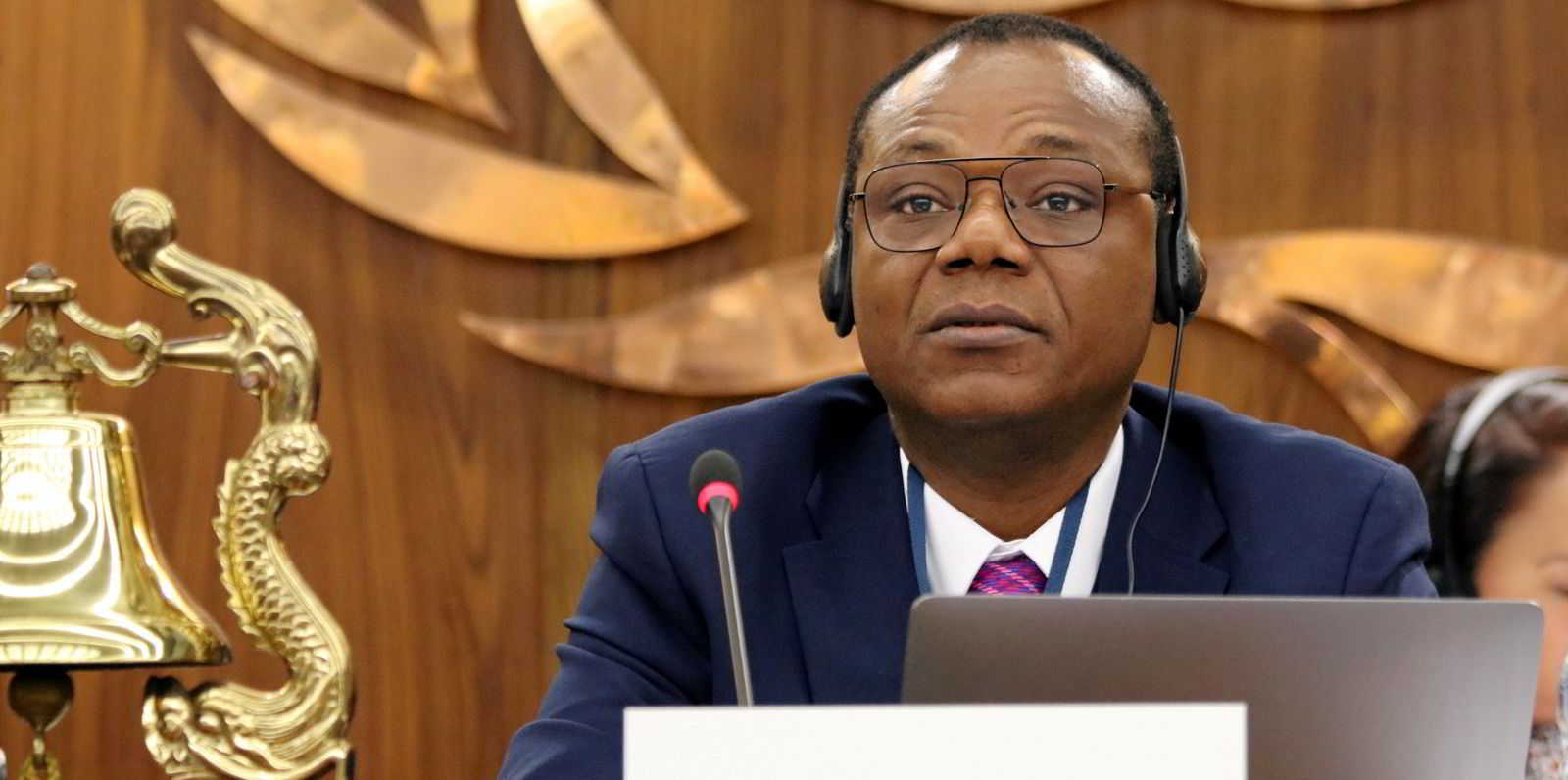
“Significant differences remain to be resolved on the use of tank-to-wake and well-to-wake GHG factors and the use of funds, but there is a growing sense of agreement on the principal mechanisms that are critical to addressing the GHG challenge at the global level,” he said.
Despite the failure of a proposal by the Marshall Islands and other Pacific countries to adopt a resolution now committing to a zero-carbon goal, environmental groups and were encouraged by the growing number of countries that voiced support for a zero-carbon goal.
Nigeria says yes
A surprise convert to the zero-carbon camp was oil and gas producer Nigeria, and Chile climbed its way off the “no” column to support a net-zero goal.
Lucy Gilliam, senior shipping policy officer at Seas at Risk, said it was encouraging to see newcomers that are viewing decarbonising shipping as an economic opportunity.

“What we have been calling for for years, is finally happening: the IMO is slowly, but without a doubt, making progress on climate,” she said.
Simon Bergulf, director of ESG, public and regulatory affairs at container shipping giant AP Moller-Maersk, detected another change in stance.
First at IMO
“It is the first time that we can see an increased marginalisation of the very conservative positions by states and industry organisations,” he said in a post on LinkedIn.
“The vast majority of interventions supported a combination of an economical GHG measure and a global fuel standard.”
And he noted that for the first time in his involvement at the IMO, large cargo owners like Amazon and Philips were present to show support for high decarbonisation ambitions.
Daniele Rao, a shipping and aviation expert at Carbon Market Watch, said that while most countries are onboard with tough targets, there is less progress on the policies needed to meet those goals.
“The IMO has been talking about the same ‘basket of measures’ for over a year, but the time is now to start shortlisting the best, most ambitious and equitable proposals,” he said.
“The $100 carbon levy proposed by the Marshall Islands and the Solomon Islands is the best option on the table for reducing greenhouse gas emissions from ships and for supporting the most vulnerable.”
While the IMO did not make any concrete decisions on greenhouse gas emissions, the environment committee agreed to establish an emissions control area for the Mediterranean capping sulphur oxide and particulate matter emissions.
